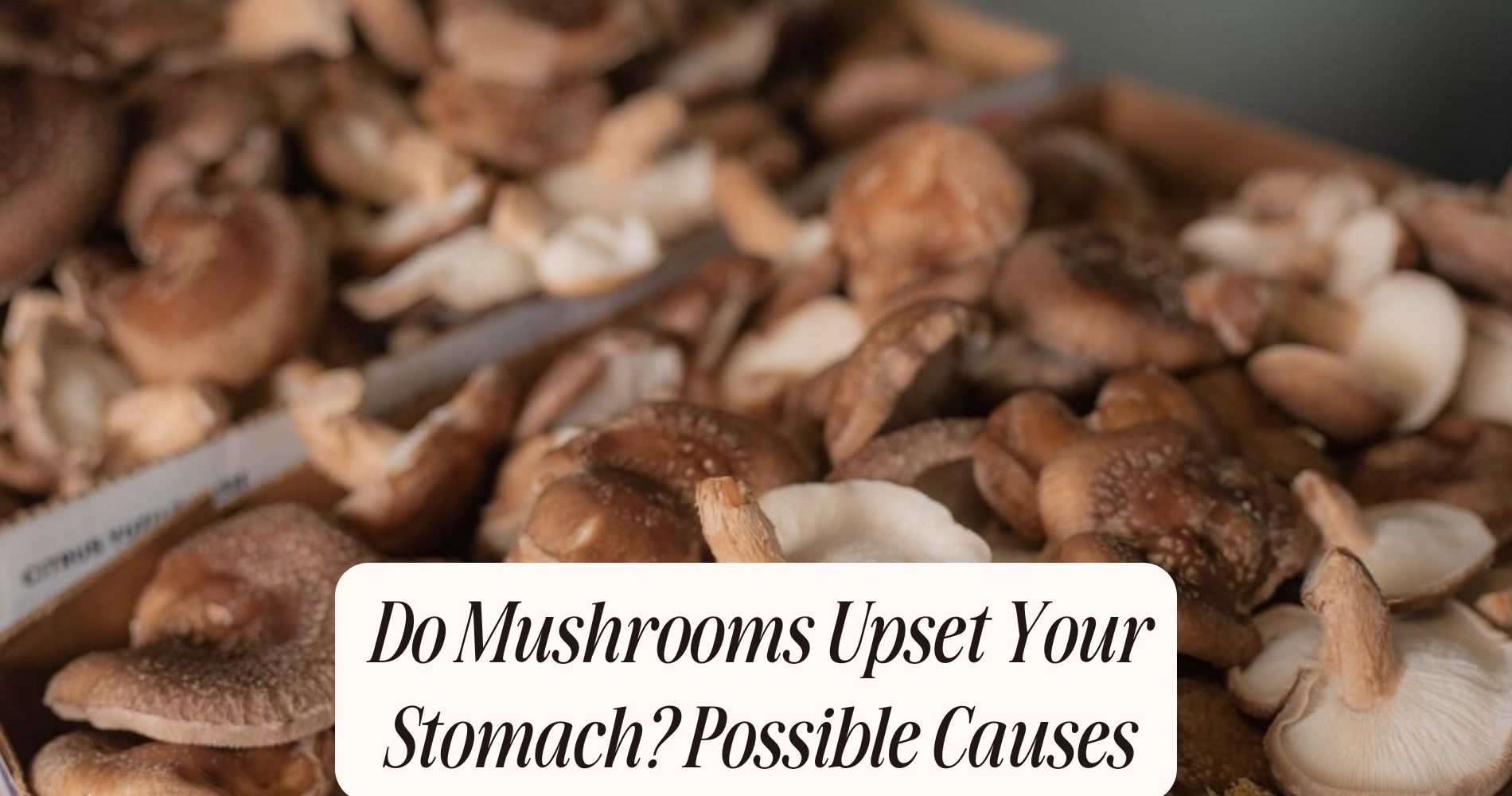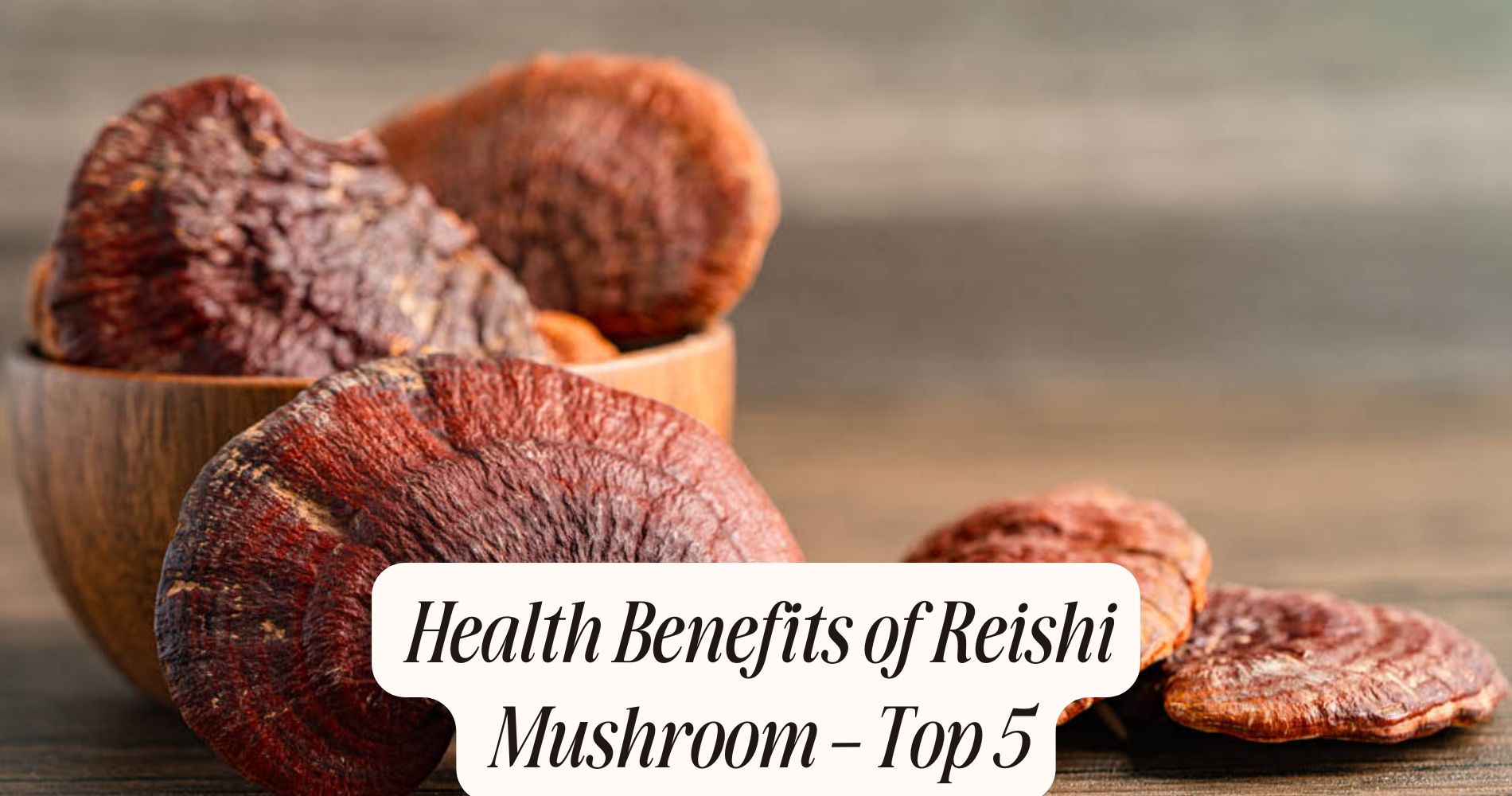
Do Mushrooms Upset Your Stomach? Possible Causes
Do mushrooms upset your stomach? Mushrooms can upset your stomach due to fermentable carbohydrates (like mannitol), indigestible fibers such as chitin, or possible allergens triggering gastrointestinal symptoms—bloating, gas, abdominal pain, or diarrhea. If you have enzyme deficiencies or conditions like IBS, these reactions occur more frequently. Symptoms can vary with the type and amount you eat, and interactions with other foods or contaminants also play a role. Different mushroom varieties impact the gut differently, so understanding the causes will clarify what to expect.
Common Digestive Reactions to Mushrooms
Although mushrooms are widely regarded as a nutritious food, they can provoke a range of digestive reactions in some individuals. You may experience symptoms such as abdominal pain, bloating, diarrhea, or nausea after mushroom consumption.
These responses often stem from your gastrointestinal tract's interaction with components unique to fungi. Mushroom fermentation within the gut can produce excess gas, leading to discomfort or distension. Additionally, certain fungal toxins—either naturally occurring or resulting from improper storage—can irritate the gastrointestinal mucosa, triggering acute symptoms like cramping or emesis.

Clinical recognition of these manifestations is vital, as they may mimic foodborne illness or intolerances. If you consistently observe adverse reactions post-ingestion, a diagnostic workup to evaluate for hypersensitivity or toxin-mediated effects is warranted.
FODMAPs in Mushrooms and Their Effects
When you consume mushrooms, you're ingesting significant amounts of fermentable oligosaccharides, disaccharides, monosaccharides, and polyols—collectively known as FODMAPs. The FODMAP content in mushrooms, especially mannitol, plays a critical role in gastrointestinal symptoms for sensitive individuals.
These carbohydrates resist digestion in your small intestine and reach the colon, where they undergo digestive fermentation by colonic bacteria. This process produces gas and increases water content in the bowel, which can lead to bloating, abdominal discomfort, flatulence, and diarrhea if you're susceptible to FODMAPs.
Clinical studies correlate high-FODMAP foods, like mushrooms, with exacerbation of irritable bowel syndrome symptoms. If you experience these reactions, diagnostic evaluation may focus on your response to dietary FODMAPs and recommend a tailored elimination or reduction strategy.
The Role of Chitin in Digestive Discomfort
Because mushrooms contain chitin—a structural polysaccharide absent in human digestive enzymes—your gastrointestinal tract can't efficiently break it down.
Chitin, a key component of mushroom fiber, resists hydrolysis by endogenous enzymes such as amylase and protease. As a result, undigested chitin progresses to the colon, where it undergoes fermentation by colonic microbiota.
This microbial activity can produce gas, bloating, or abdominal discomfort, especially if your gut flora isn't adapted for effective chitin digestion.

Clinical studies indicate that individuals vary in their capacity to tolerate dietary chitin, often depending on the composition of their intestinal microbiome.
If you frequently experience gastrointestinal symptoms after consuming mushrooms, chitin digestion may represent a significant factor.
Diagnostic evaluation can help differentiate chitin-related intolerance from other gastrointestinal etiologies.
Food Allergies and Mushroom Sensitivity
If you experience recurrent gastrointestinal symptoms after eating mushrooms, consider the potential role of food allergies or hypersensitivity reactions.
Allergic responses to mushrooms may manifest as abdominal pain, nausea, vomiting, or diarrhea. You might develop these symptoms due to immunologic reactions to specific proteins present in certain mushroom species, which can vary based on mushroom cultivation practices and culinary techniques.
Cross-reactivity with other fungal allergens, such as molds, is also possible.
Diagnostic evaluation should include a detailed dietary history, symptom diary, and, if indicated, skin prick or serum-specific IgE testing.
Identifying the mushroom species, cultivation methods, and preparation style can help differentiate between true allergy and non-allergic sensitivity.
If allergy is suspected, strict avoidance and consultation with an allergist are recommended.
Enzyme Deficiencies and Mushroom Digestion
Although mushrooms are a nutritious food source, their complex polysaccharides—such as chitin and beta-glucans—often pose digestive challenges due to limited human enzymatic capacity.
You may experience gastrointestinal symptoms if your enzyme profile exhibits an enzyme imbalance, particularly with chitinase and beta-glucanase. These enzymes are vital for hydrolyzing mushroom cell wall components.
Insufficient production or activity can reduce digestion efficiency, leading to symptoms like bloating, abdominal discomfort, or altered bowel movements.

Clinical studies indicate that humans naturally lack significant chitinase activity, making chitin a common contributor to digestive complaints.
If you frequently experience gastrointestinal distress after consuming mushrooms, consider enzyme deficiencies as a potential etiology.
Diagnostic evaluation may include assessment of exocrine pancreatic function or targeted stool analysis to identify specific enzymatic insufficiencies.
Preparing and Cooking Methods That Impact Digestion
While the nutritional profile of mushrooms remains consistent, the way you prepare and cook them can considerably alter their digestibility and potential to provoke gastrointestinal symptoms.
Evidence suggests that raw mushrooms contain higher concentrations of chitin, a polysaccharide resistant to human digestive enzymes, which may cause bloating or discomfort. By employing marinating techniques with acidic components, you can initiate partial breakdown of cell walls, potentially easing gastrointestinal processing.
Cooking temperatures also play a critical role; high heat facilitates protein denaturation and fiber softening, enhancing digestibility and reducing the risk of gastrointestinal irritation. Conversely, inadequate cooking may leave structural polysaccharides intact, increasing the likelihood of adverse symptoms.
Consequently, optimizing marinating techniques and cooking temperatures can mitigate digestive challenges associated with mushroom consumption.
The Impact of Portion Size on Your Stomach
Optimizing preparation and cooking methods can improve mushroom digestibility, but portion size remains a significant determinant in gastrointestinal tolerance.
If you consume a large serving size, you may overwhelm your digestive system’s enzymatic capacity to break down mushroom polysaccharides such as chitin. Evidence suggests that inadequate portion control can increase the likelihood of symptoms like bloating, abdominal pain, and flatulence.
Smaller servings allow your gastrointestinal tract to process fibers and non-digestible components more efficiently, reducing the risk of discomfort. Clinical observations indicate that individuals with sensitive digestion should begin with modest serving sizes, monitoring for adverse effects.
Adjusting your portion control based on tolerance can help minimize gastrointestinal distress. Ultimately, paying attention to the amount you ingest can be as essential as preparation in managing mushroom-related digestive symptoms.
Interactions With Other Foods
When mushrooms interact with other dietary components, they can influence gastrointestinal outcomes by altering digestive kinetics and absorption. You may experience increased gastric discomfort if mushrooms are consumed alongside high-fat foods or those rich in fermentable oligosaccharides, disaccharides, monosaccharides, and polyols (FODMAPs). These combinations can slow gastric emptying or promote fermentation, exacerbating bloating or gas.
Additionally, medication interactions play a significant role; certain pharmaceuticals, such as anticholinergics, can impair gastrointestinal motility, potentially intensifying mushroom-induced symptoms. Herbal supplements, particularly those affecting liver enzyme activity (e.g., St. John’s Wort), may also alter how your body metabolizes mushroom components, leading to unpredictable digestive responses.
To identify causality, you should systematically assess recent dietary patterns, medication use, and supplement intake when evaluating gastrointestinal disturbances following mushroom consumption.
Differences Among Mushroom Varieties
Although all mushrooms share certain nutritional components, their biochemical profiles differ markedly, which can influence gastrointestinal tolerance. You’ll notice that cultivated mushrooms like Agaricus bisporus (white button, cremini, portobello) contain different levels of chitin, mannitol, and other polysaccharides compared to wild or specialty varieties.

Some individuals experience increased bloating or discomfort from these fermentable carbohydrates. In contrast, medicinal mushrooms—such as reishi, shiitake, or lion’s mane—possess unique bioactive compounds like beta-glucans and triterpenoids, which can elicit varying digestive responses.
Mushroom cultivation methods also affect allergenicity and microbial content, further influencing your gut’s reaction. Evidence suggests that wild and medicinal mushrooms may provoke gastrointestinal symptoms more frequently than common cultivated types.
Identifying which mushroom variety you’ve consumed is vital for accurate symptom assessment and dietary modification.
When to Seek Medical Advice for Symptoms
Understanding the specific mushroom variety you've eaten can help determine if your digestive symptoms are expected or warrant further attention.
If you experience mild, self-limited symptoms such as transient bloating or mild abdominal discomfort, observation and supportive care are typically sufficient. However, you should assess symptom severity carefully. Persistent vomiting, severe abdominal pain, profuse diarrhea, blood in stool, or signs of dehydration—such as dizziness or reduced urine output—require prompt medical consultation.
If you've consumed wild or unidentified mushrooms, seek emergency evaluation regardless of initial symptom severity, as toxic varieties may cause delayed but life-threatening effects.
Don’t delay seeking care if you develop confusion, jaundice, or abnormal heart rhythms.
Timely medical consultation allows for accurate diagnosis and intervention, minimizing the risk of complications from mushroom-related gastrointestinal symptoms.
Gentle on Your Stomach: SUPER MUSHROOM GUMMIES
If mushrooms sometimes upset your stomach, but you still want to reap their benefits, try Well Gummies' SUPER MUSHROOM GUMMIES! These convenient chewable gummies contain 10 functional mushrooms formulated to support brain function, energy, and immunity—without the digestive discomfort of whole mushrooms. Plus, they taste like fresh wild berries, just as delicious as your favorite candy. Enjoy calmer energy, sharper focus, and a balanced body without jitters or crashes. Shine all day with Well Gummies!
Frequently Asked Questions
Can Mushrooms Interact With Medications and Cause Stomach Upset?
You should consider potential medication interactions, as certain compounds in mushrooms can alter drug metabolism, leading to digestive sensitivities or stomach upset. Evaluate your current medications and consult a healthcare provider to identify possible pharmacological or gastrointestinal risks.
Are Canned or Pickled Mushrooms Easier on the Stomach?
Canned or pickled mushrooms undergo processing methods that alter fiber structure and introduce flavor preservatives. You might find them easier to digest, but some individuals experience gastrointestinal symptoms due to added sodium, acids, or sulfite-based preservatives. Monitor your response.
Do Mushroom Supplements Cause the Same Digestive Issues as Fresh Mushrooms?
You may still experience gastrointestinal symptoms from mushroom supplements if you have a mushroom allergy or lack digestive enzymes to break down certain polysaccharides. Clinical evidence suggests supplement form doesn't always eliminate potential digestive issues compared to fresh mushrooms.
Is Mushroom-Induced Stomach Upset More Common in Children or Elderly People?
You should consider that age related digestion changes and altered immune response can predispose both children and elderly people to mushroom-induced stomach upset. However, evidence suggests elderly individuals experience increased risk due to slower digestion and compromised immunity.
Can Mushroom Powder in Smoothies Irritate the Digestive Tract?
You might experience digestive tract irritation from mushroom powder in smoothies, as mushroom digestion varies individually. Powder effects may include bloating or mild gastrointestinal distress, particularly if you have sensitivities or underlying digestive disorders. Monitor symptoms diagnostically.
Conclusion
If mushrooms upset your stomach, you’re not alone. Digestive reactions can stem from FODMAP content, chitin’s indigestibility, allergies, or enzyme deficiencies. Portion size and food combinations may exacerbate symptoms. Evidence shows different mushroom varieties cause varying responses. Carefully track your symptoms and consider elimination or substitution. Persistent or severe gastrointestinal issues warrant medical evaluation to rule out underlying conditions such as intolerance, allergy, or digestive disorders. Prioritize diagnostic clarity to ensure your diet supports your gastrointestinal health.




